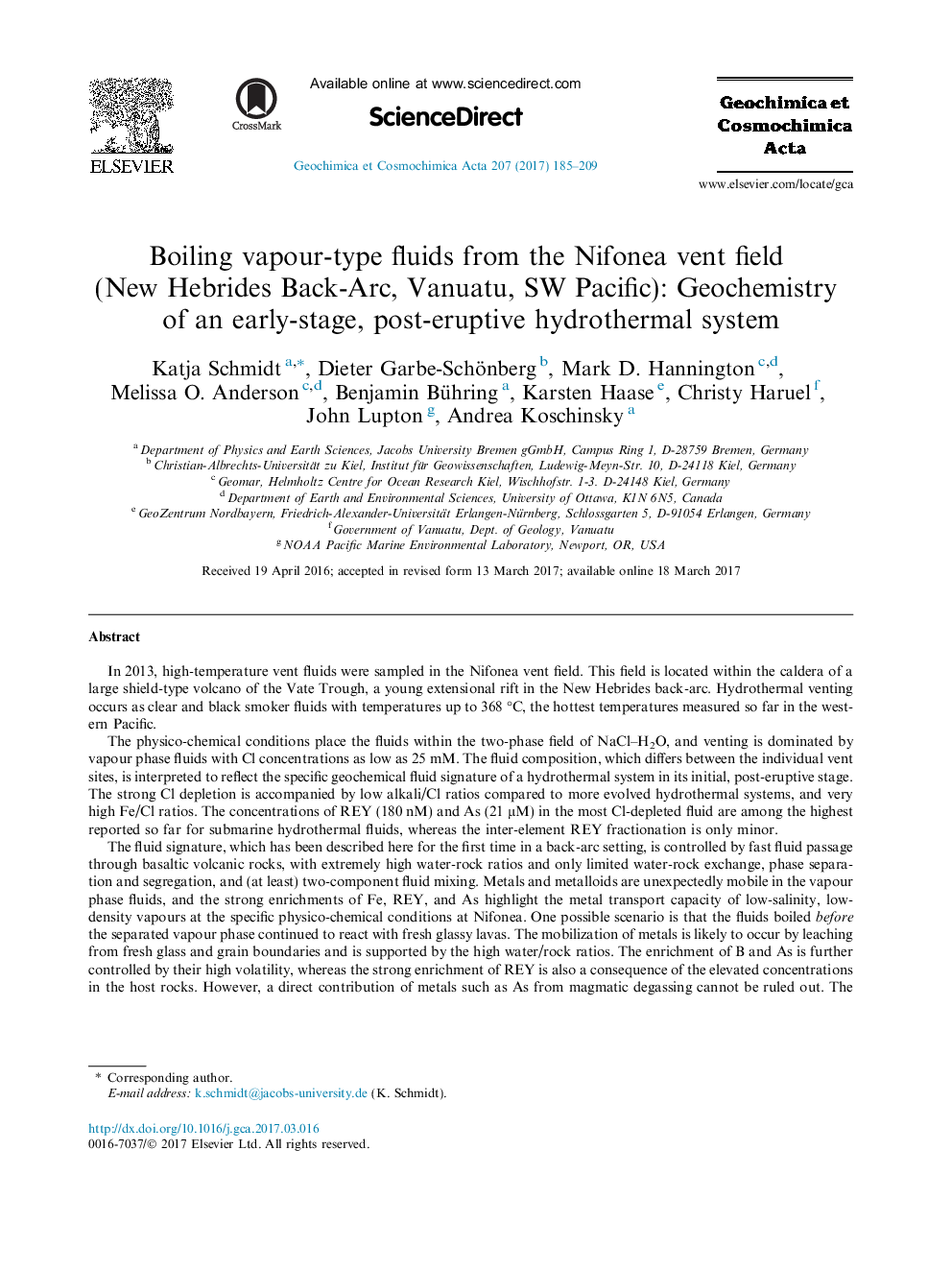| Article ID | Journal | Published Year | Pages | File Type |
|---|---|---|---|---|
| 5783525 | Geochimica et Cosmochimica Acta | 2017 | 25 Pages |
Abstract
The fluid signature, which has been described here for the first time in a back-arc setting, is controlled by fast fluid passage through basaltic volcanic rocks, with extremely high water-rock ratios and only limited water-rock exchange, phase separation and segregation, and (at least) two-component fluid mixing. Metals and metalloids are unexpectedly mobile in the vapour phase fluids, and the strong enrichments of Fe, REY, and As highlight the metal transport capacity of low-salinity, low-density vapours at the specific physico-chemical conditions at Nifonea. One possible scenario is that the fluids boiled before the separated vapour phase continued to react with fresh glassy lavas. The mobilization of metals is likely to occur by leaching from fresh glass and grain boundaries and is supported by the high water/rock ratios. The enrichment of B and As is further controlled by their high volatility, whereas the strong enrichment of REY is also a consequence of the elevated concentrations in the host rocks. However, a direct contribution of metals such as As from magmatic degassing cannot be ruled out. The different fluid end-member composition of individual vent sites could be explained by mixing of vapour phase fluids with another fluid phase of different water/rock interaction history.
Related Topics
Physical Sciences and Engineering
Earth and Planetary Sciences
Geochemistry and Petrology
Authors
Katja Schmidt, Dieter Garbe-Schönberg, Mark D. Hannington, Melissa O. Anderson, Benjamin Bühring, Karsten Haase, Christy Haruel, John Lupton, Andrea Koschinsky,
